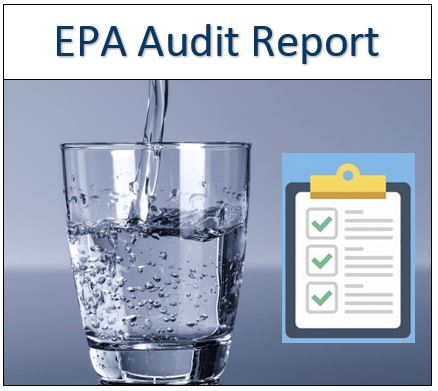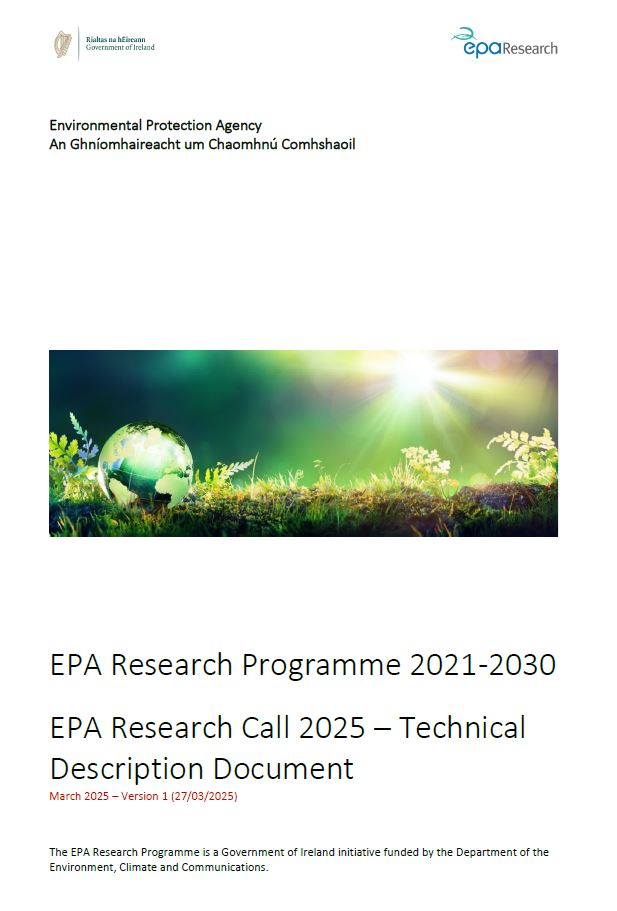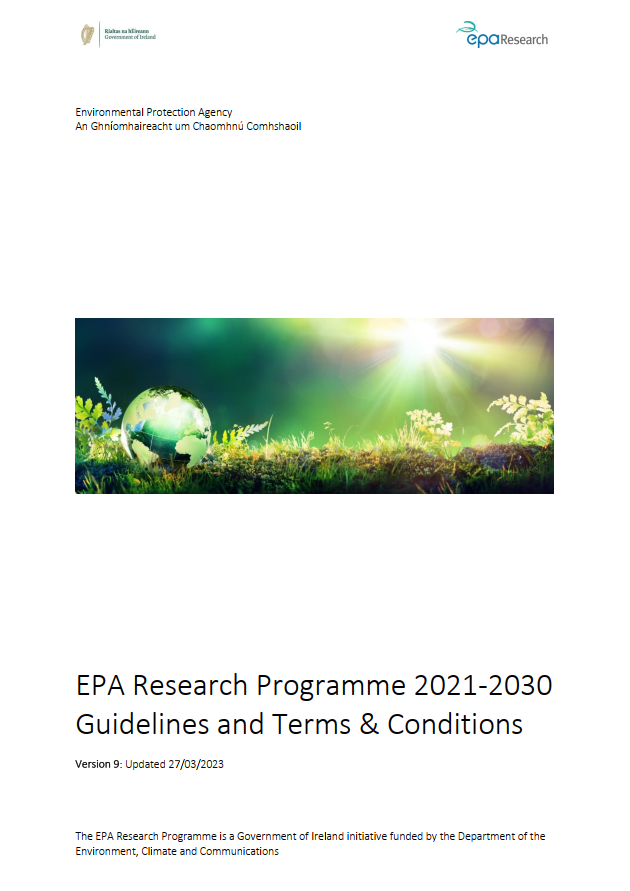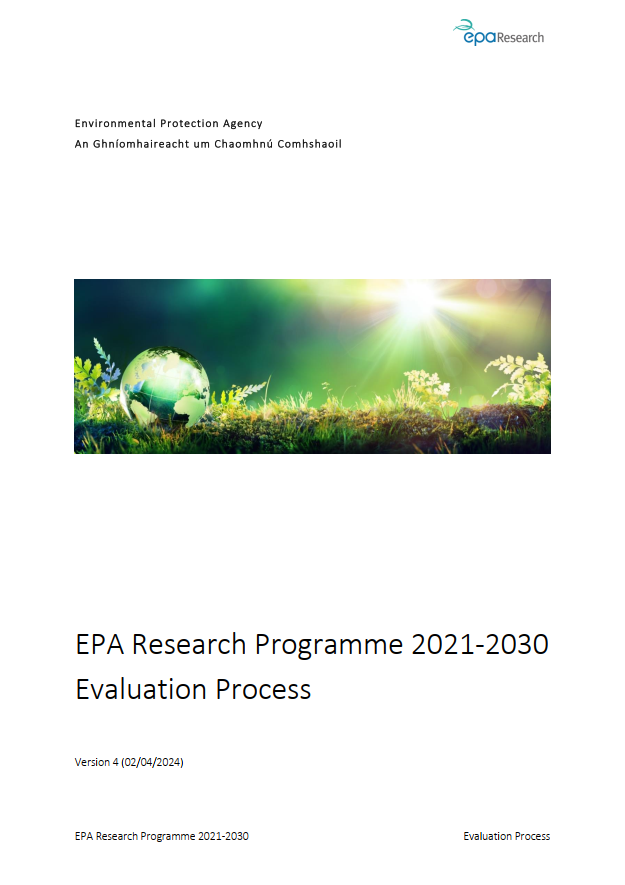Latest Publications

Arklow Public Drinking Water Supply 2024
Year: 2025
Drinking Water Audit Report in respect of audit carried out on 25/04/2024 at Arklow Public Drinking Water Supply
Waste Water Discharge Site Visit Report
Year: 2025
Waste Water Discharge site visit report template.

Evidence Synthesis Report 6: Just Transition Indicator Framework for Ireland
Authors: J. Andrew Kelly, Ciaran Deegan, Amy Collins, Angela Milimu, Luke Kelleher and Yanika Farrugia, April 2025
Year: 2025
This research was carried out by EnvEcon Decision Support and provides guidance for Government on how to monitor and track success in ensuring a fair, inclusive and equitable transition to a low-carbon economy.
Solid Fuel Register (2024-2025)
A list of registered solid fuel producers, from 1st September 2024 to 31st August 2025. , April 2025
Year: 2025
FOI Disclosure Log January to March 2025
Details of non-personal requests received under the Freedom of Information Act 2014 , April 2025
Year: 2025
Details of non-personal requests received under the Freedom of Information Act 2014, published on a quarterly basis.

Research 485: Specific Management and Robust Targeting of Riparian Buffer Zones
Authors: Daire Ó hUallacháin, Per-Erik Mellander, Simon Parker, Nikki Baggaley, Mark E. Wilkinson, Allan Lilly and Marc Stutter, April 2025
Year: 2025
With many of Irelands surface waters classed as less than the minimum of “good ecological status” under the Water Framework Directive, this research project looked to support optimal targeting and management of riparian margins, in agricultural contexts, for effective management of rivers in Ireland. It delivers a riparian measures database summarising alternative measures for Irish conditions, evaluating their effectiveness and wider ecosystem service benefits. Core to the research is the “Right Measure, Right Place” concept, a key tenet of Ireland’s River Basin Management Plan (2022–2027). Tools were developed to identify locations for maximum impact, using landscape context to prioritise 16 identified mitigation measures. The project aims to help policymakers and other research projects expand beyond traditional approaches to achieve water quality objectives under policies like the Common Agricultural Policy and Water Framework Directive.

Hydrology Summary Bulletin - March 2025
Hydrology bulletin on rainfall, river flows, lake levels, groundwater levels and spring outflows for March 2025., April 2025
Year: 2025
Hydrology Summary Bulletin outlining the flows in rivers, rainfall, lake and turlough levels, groundwater levels and spring outflows of over 300 stations across Ireland for the month
Fee Reduction/Waiver Request Form
Year: 2025
Axpo UK Limited IE-GHG-ETS2018-01
Year: 2025

Research 484: Framework for Characterising Oligotrophic (3110 and 3160) Lakes Using Practical Methods and Assessment Tools
Authors: Heather T. Lally, Martin Gammell, Emma Gray, Giovanni Cappelli and Cilian Roden, April 2025
Year: 2025
Oligotrophic lake habitats, which are characterised by low accumulation of dissolved nutrient salts are protected freshwater habitats in Ireland. These habitats support limited life forms, mainly algae and macroinvertebrates. This research report, from the "Peat Lakes" project, looks at the potential of these organisms to help in characterising and conserving oligotrophic lakes using practical methods and assessment tools. It assesses and provides findings on water chemistry and data from plant communities, including macrophytes, algal communities (including desmids), and invertebrate communities from 24 water bodies within Atlantic blanket bog landscapes in the west of Ireland. The report makes several recommendations and provides relevant stakeholders from state agencies with important information for the conservation of small water bodies (area ≤ 0.01 km²), to support the monitoring of favourable conservation conditions in oligotrophic lake habitats, under the EU Habitats Directive.
Access to EDEN and Water Abstraction Module
Year: 2025

Air Pollution Appeal - Lagan Tarmac Ltd - E0012-01
Year: 2025
These documents outline the decision made by the Environmental Protection Agency in relation to an Appeal regarding a decision made by Tipperary County Council (ref. AIR/L/05/01) to grant a licence under the Air Pollution Act 1987, as amended, to Lagan Tarmac Ltd.
MoU with Health & Safety Authority
Year: 2025

Research 483: Just Resilience and Adaptation in Ireland (JustAdapt)
Authors: Stefano Ceolotto, Niall Farrell, Pranav Kakkar and Anita Vollmer, April 2025
Year: 2025
Both the impacts of climate change and the policy responses to mitigate emissions affect different sections of society in different ways. The JustAdapt research project is the first national-level study to consider socioeconomic vulnerability alongside climate change impacts at a local level in Ireland. It includes modelling extreme weather events to identify where climate impacts and socioeconomic vulnerability coincide, assessing local economic impacts of climate policies, and developing guidelines for incorporating nature-based solutions, equity and justice into climate policy decision-making. Overall, the research offers policymakers, planners, and stakeholders’ insights to design fair, effective, and sustainable climate adaptation policies and strategies, while considering socio-economic vulnerabilities and promoting nature-based solutions for a resilient future.


